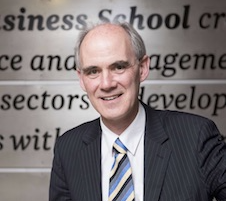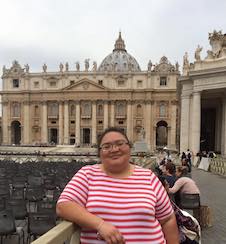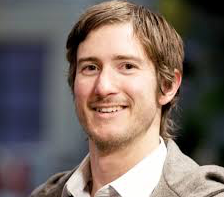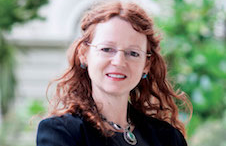For the past century, our world has been changing drastically. The weather is warmer, the seas are higher, and the ozone is thinner. These are just some of the increasingly dangerous consequences of our fossil-fuel based lifestyle. None of us is solely to blame for these changes. Yet, each of us is responsible for contributing to these consequences. Facing such unprecedented challenges, it is difficult to know how each of us ourselves, and all of us together might, take small steps and make giant leaps toward a more sustainable way of life. Spend ninety minutes with a panel of policy analysts, legal experts, and social activists as we reflect on the ecological crisis, the policy issues at stake in the coming election, as well as the political, ethical, and theological basis for protecting the planet for future generations.

Jonathan Boston has undertaken research on a wide range of policy issues during the course of his academic career including climate change, child poverty, the design of the welfare state, public management, tertiary education and comparative government. On climate change, he established a round table process via the Institute of Policy Studies in 2006 which brought together politicians, public servants, business representatives, non-government organizations and researchers to discuss a wide range of mitigation and adaptation issues. The round tables were held about four times a year and continued for a decade.
 Koreti Tiumalu is a Samoan climate activist who was born and raised in Wellington, New Zealand. She is Pacific Region Coordinator for 350.org and works with the Pacific Climate Warriors - a network of grassroots climate organisers from 15 Pacific Island nations. One of the key objectives of 350.org in the Pacific is to find new and innovative ways to raise global awareness of climate realities experienced in the islands that are uniquely Pacific and to engage local communities impacted directly by climate change. Two of the notable campaigns Koreti was involved in were a blockade of the Newcastle coal port in Australia, using traditional hand carved paopao (canoes) in 2014 and a three-day prayer vigil using fine mats at the Vatican in Rome in October 2015.
Koreti Tiumalu is a Samoan climate activist who was born and raised in Wellington, New Zealand. She is Pacific Region Coordinator for 350.org and works with the Pacific Climate Warriors - a network of grassroots climate organisers from 15 Pacific Island nations. One of the key objectives of 350.org in the Pacific is to find new and innovative ways to raise global awareness of climate realities experienced in the islands that are uniquely Pacific and to engage local communities impacted directly by climate change. Two of the notable campaigns Koreti was involved in were a blockade of the Newcastle coal port in Australia, using traditional hand carved paopao (canoes) in 2014 and a three-day prayer vigil using fine mats at the Vatican in Rome in October 2015.
 Paul Young is a scholar and activist dedicated to stopping climate change. He studied physics and mathematics at University of Otago, and completed an MSc modelling ocean wave power systems. In 2011, he helped found Generation Zero, a youth activist organisation whose objective is to get New Zealanders “to step up, act responsibly, and secure a safe thriving zero carbon Aotearoa.” And in 2014, he was the lead author of their report, “A Challenge to Our Leaders.” Paul currently works on research for the Morgan Foundation and the Sustainability Council of New Zealand, and also serves as a trustee of the National Energy Research Institute.
Paul Young is a scholar and activist dedicated to stopping climate change. He studied physics and mathematics at University of Otago, and completed an MSc modelling ocean wave power systems. In 2011, he helped found Generation Zero, a youth activist organisation whose objective is to get New Zealanders “to step up, act responsibly, and secure a safe thriving zero carbon Aotearoa.” And in 2014, he was the lead author of their report, “A Challenge to Our Leaders.” Paul currently works on research for the Morgan Foundation and the Sustainability Council of New Zealand, and also serves as a trustee of the National Energy Research Institute.
 Catherine Iorns is Senior Lecturer in Law at Victoria University of Wellington. She researches and teaches about environmental law, climate change, and human rights. She also is a Climate Reality Presenter. In addition to these roles, Catherine serves a number of civic organisations, including, Amnesty International of Aotearoa New Zealand, 350 Aotearoa, and the Earth Law Alliance Aotearoa New Zealand.
Catherine Iorns is Senior Lecturer in Law at Victoria University of Wellington. She researches and teaches about environmental law, climate change, and human rights. She also is a Climate Reality Presenter. In addition to these roles, Catherine serves a number of civic organisations, including, Amnesty International of Aotearoa New Zealand, 350 Aotearoa, and the Earth Law Alliance Aotearoa New Zealand.
![[2017.04.27] Protecting the Planet in a World of Ecological Crisis [Don't Believe in Global Warming – WEB]](https://www.otago.ac.nz/__data/assets/image/0015/332034/20170427-protecting-the-planet-in-a-world-of-ecological-crisis-dont-believe-in-global-warming-web-643148.jpg)